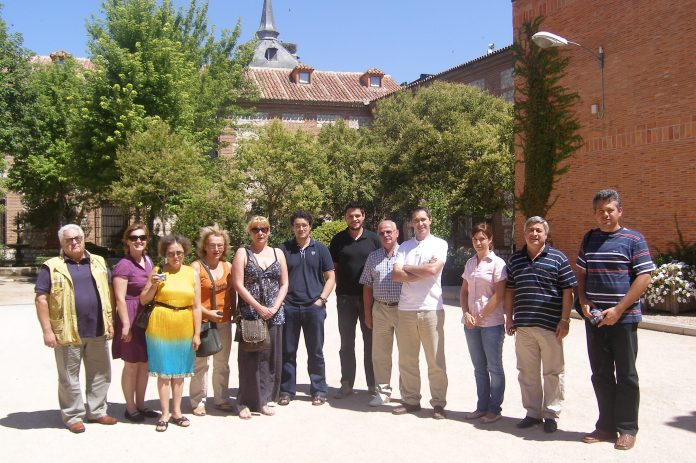Last week the whole consortium of the Organic.Edunet project gathered in Budapest for the final review meeting. During the last 3 years, we have developed a portal which provides educational resources about organic agriculture and agroecology in digital format, a methodology of work through scenarios, and a federation model that is already been used as the basis for “derived efforts” such as Organic.Mednet, Organic.Balkanet and CerOrganic.
The Organic.Edunet project was originally intended to facilitate access, usage and exploitation of digital educational content related to Organic Agriculture and Agroecology. Today, our Web portal provides access to more than 10,000 resources from 11 institutional collections and 2 user communities. After all the presentations, the result of the review was a green++ flag (in the own words of the Project Officer) and a explicit recognition of the quality of the work and the consortium team.

Representatives of all partners pose with the Project Officer and ther reviewers
On the personal side, I look back and realise how these 3 years represent an unforgettable learning experience -not always, but most often- for the good. It has been a pleasure and a privilege to lead the UAH team in the most exposed Work Package by far: the development of the portal and the creation of the semantic search engine. My special thanks to Nikos Manouselis, the man behind the idea; to Aage Steem, for his kindness and comprehension during the ontology creation (good luck on your new dedication!); Alberto and Ramiro, my close collaborators and excellent programmers (without them everything would have been harder); to Maria Toader, always ready to help and by far the quickest in all translation tasks! ; and to Nikos Palavitsinis, for his flexibility and patience when I submitted the cost reports later (virtually always!)

Drinks on the success of the Organic.Edunet project

UAH core development team celebrates
After all, we built a group that will hopefully cooperate in new projects in the forthcoming years, so we had many reasons to celebrate with a few drinks and enjoy the lively Budapest nightlife. Well done everybody and… Cheers!

















You must be logged in to post a comment.